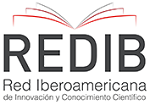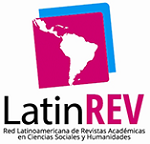Pedagogical importance of reading literacy. A comparative study on PISA
DOI:
https://doi.org/10.15649/2346030X.3105Keywords:
academic achievement, reading literacy, reading, reading comprehension, the PISA technical reportAbstract
Reading, as complex cognitive activity, has become the focus of numerous national and international studies from a comparative perspective. This research analyses the Programme for International Student Assessment (PISA) over the last few years due to, according to the results, the low performance presented by Spanish students in reading skills. This low result is shown in the different stages analysed and it is even worse if it is considered the 2006 and 2018 reports since in those years worst results were achieved (461 and 477 points respectively).
In order to do this, different factors that have an influence on reading skills are analysed. It is done a comparative and longitudinal research from 2000 to 2018 that considers all the results provided by OECD. With that data in mind and the purpose of understanding them and contextualize those factors that could rise to them, other elements are studied, such as the presence of the reading skills in the Spanish legislation, the investment made in Secondary Education, the rate of students who finish Compulsory Secondary School, as well as the evolution that school libraries have had in terms of number, uses or the participation of families and the environment in them. These aspects are analysed in a way that is compared with the reading performance obtained throughout the PISA studies. Finally, the approach of the PISA reports justifies its use as a reference for a qualitative and global understanding of the aspects that interfere with appropriate reading skills in fifteen-year-old students. This goes beyond numerical results.
References
T. Dezcallar, M Clariana, R Cladellas, M Badia & C. Gotzens, “Reading for pleasure: its incidence on academic performance, hours of television and hours of video games”, Ocnos: Journal of Reading Studies, vol. 12, pp. 107-116, 2014. https://doi.org/10.18239/ocnos_2014.12.05.
M.D. Delgado, I. Méndez & C. Ruiz, “Motivation towards reading in Pre-school and Primary School students”, European Journal of Education and Psychology, vol. 13, no 2, pp.177-186, 2020. https://doi.org/10.30552/ejep.v13i2.359.
J. Mora-Figueroa, A. Galán & M. López-Jurado, “Effectiveness of a family involvement programme in the reading of students in the 1st year of Primary Education”, Revista de Psicodidáctica, vol. 21, no 2, pp. 375-391, 2016.
I. Bento & A. Balça, “Promoting literary education - the family and the teacher as reading mediators”, Tejuelo, vol. 23, pp. 63-84, 2016. https://doi.org/10.17398/1988-8430.23.1.63.
H. Arendt, “From history to action”, Barcelona: Ediciones Paidós, 1995.
I. Zorroza, “Transcendence and openness. An image of man for our time”, Cauriensia, vol. 10, pp. 459-471, 2015.
S. Yubero-Jiménez & E. Larrañaga-Rubio, “The value of reading in relation to reading behaviour. A study on reading habits and lifestyle in children”, Ocnos, vol. 6, pp. 7-20, 2010.
E. Sanz-Arazuri, M.A Valdemoros-San-Emeterio, C. Duque-Palacios & F.J. García-Castilla, “Youth cultural leisure, a subjective indicator of human development”, Cauriensia, vol. 14, pp. 491-511, 2019. https://doi.org/10.17398/2340-4256.14.491
M.A. Valdemoros-San-Emeterio, E. Sanz-Arazuri, A. Ponce-de-León-Elizondo & M.C. Duque-Palacios, “Young readers and satisfaction with family life”, Ocnos, vol. 19, no 3, pp. 29-41, 2020. https://doi.org/10.18239/ocnos_2020.19.3.2361
F. Pedró, “Deconstructing PISA scores: from the analysis of results to policy prescription”, Revista Española de Educación Comparada, vol. 19, pp. 139-172, 2012. https://doi.org/10.5944/reec.19.2012.7581.
I. Solé, “Reading competence and learning”, Revista Iberoamericana de Educación, vol. 59, pp. 43-61, 2012. https://doi.org/10.35362/rie590456.
OECD, “Definition and selection of Key Competencies. Executive Summary”, Paris: OECD Publications, 2005.
Ministry of Education and Vocational Training, “PISA 2018. Programme for International Student Assessment. Spanish report”, Madrid: Secretaría General Técnica, 2019.
OECD, “PISA 2018 Results (Volume I): What students know and can do”, Paris: OECD Publishing, 2019.
Ministry of Education and Vocational Training, “How does PISA define and measure reading literacy?”, Madrid: Secretaría de Estado de Educación, 2019.
I. Mullis, M. Martin & M. Sainsbury, “PIRLS reading comprehension framework” in Mullis, I., and Martin, M., “PIRLS 2016.Assessment framework” (11-29), Madrid: Ministry of Education, Culture and Sport, 2016.
T. Harris & R. Hodges, “The Literacy Dictionary: The Vocabulary of Reading and Writing”, Newark: International Reading Association, 1995.
National Reading Panel, “Teaching children to read: an Evidence-Based Assessment of the Scientific Research Literature on Reading and Its Implications for Reading Instruction”, Bethesda: National Reading Panel, 2000.
G. Wells, “The meaning makers: Learning to talk and talking to learn (2nd edition)”, Bristol: Multilingual Matters, 2009.
P. Freebody & A. Luke, “Literacies Programs: Debate and Demands in Cultural Context”, Prospect: Australian Journal of Teaching/Teachers of English to Speakers of Other Languages (TESOL), vol. 5, no. 3, pp. 7-16, 1990.
E. Jiménez, “Reading comprehension vs. reading competence: what are they and what is the relationship between them”, Reading Research, vol. 1, pp. 65-74, 2014. https://doi.org/10.24310/revistaisl.vi1.10943.
I. Solé, “The possibilities of a theoretical model for teaching reading comprehension”, Journal for the Study of Education and Development, vol. 39-40, pp. 1-13, 1987.
Organic Law 2/2006, of 3rd May, on Education, Official State Gazette, no 106, 2006.
Organic Law 8/2013, of 9th December, for the improvement of educational quality, Official State Gazette, no 295, 2013.
Organic Law 3/2020, of 29th December, which amends Organic Law 2/2006, of 3rd May, on Education, Official State Gazette, no 340, 2020.
E. Pang, A. Muaka, E. Bernhardt & M. Kamil, “The teaching of reading”, Bruselas: International Academy of Education, 2003.
Ministry of Education and Culture, “Results in Spain of the PISA 2000 study. Knowledge and skills of 15-year-old students”, Madrid: Secretaría General Técnica, 2005.
OECD, “The future of education and skills. Education 2030”, Paris: OECD Publishing, 2018.
OECD, “PISA 2025 foreign language assessment framework”, Paris: OECD Publishing, 2021.
L.M. Benítez-Díaz, M.L. Sevillano & E. Vázquez, “Effects on academic performance in secondary students according to the use of ICT”, IJERI, no. 12, pp. 90–108, 2019. https://doi.org/10.46661/ijeri.4045.
M.J. Vera, “The treatment of linguistic and literary competence through the social network”, International Journal of Educational Research and Innovation, no. 2, 29-45, 2014. http://hdl.handle.net/10433/2199.
N. Alcaraz, R. Caparrós, E. Soto, R. Beltrán, A. Rodríguez & S. Sánchez, “Does PISA assess reading literacy?”, Revista de Educación, no. 360, pp. 577-599, 2013. https://doi.org/10.4438/1988-592X-RE-2011-360-130.
R.L. Linn, “Assessments and Accountability”, Educational Researcher, vol. 29, no. 2, pp. 4-16, 2000. https://doi.org/10.2307/1177052.
OECD, “OECD Skills Surveys”, 2023. https://pisadataexplorer.oecd.org/ide/idepisa/.
Ministry of Education and Vocational Training, “Education Statistics”, 2023. https://www.educacionyfp.gob.es/servicios-al-ciudadano/estadisticas.html.
J. Mayor, “Reading comprehension strategies”, Carabela, vol. 48, pp. 5-28, 2000.
F. Ferrer, O.Valiente & J.L. Castel, “PISA-2006 results from the perspective of educational inequalities: the comparison between Autonomous Communities in Spain”, Revista española de Pedagogía, no. 245, pp. 23-48, 2010.
P. Elosua, “Individual and regional differences in socioeconomic and cultural status as predictors in PISA 2009”, Revista de Educación, no. 361, pp. 646-664, 2012. https://doi.org/10.4438/1988-592X-RE-2013-361-236.
I. Minelgaite, R. Nedzinskaitė & K. Kristinsson, “Social cultural Dimensions and GDP as Predictors of Educational Leadership and School Autonomy Indicators in PISA”, Pedagogika, vol. 131, no. 3, pp. 233-251, 2018. https://doi.org/10.15823/p.2018.44.
S. Nieto & A. Recamán, “Interpretation of education systems through cluster analysis linked to some variables of the PISA-2006 Reports”, Revista española de Pedagogía, vol. 250, pp. 463-484, 2011.
S. Figueroa & J.L. Gallego, “The relationship between vocabulary and reading comprehension: A cross-sectional study in basic education”, Signos Journal. Estudios de Lingüística, vol. 54, no. 106, pp. 354-375, 2021.
C. Amiama-Espaillat & C. Mayor-Ruiz, “Exploring the relationship between reading fluency and reading competence in Secondary Education”, Ocnos. Journal of Reading Studies, vol. 17, no. 1, pp. 21-31, 2018. https://doi.org/10.18239/ocnos_2018.17.1.1278.
A. Cuevas & J. Vives, “Reading literacy in the PISA study. An analysis from the perspective of information literacy”, Anales de documentación, no. 8, pp. 51-70, 2005.
E. Vázquez-Cano, “Analysis of Difficulties of Spanish Teachers to Improve Students' Digital Reading Competence. A Case Study within the PISA Framework”, Pedagogika, vol. 125, pp. 175-194, 2017. https://doi.org/10.15823/p.2017.13.
J. Cabero-Amenara, R. Valencia-Ortíz & A. Palacios Rodríguez, “E-learning in times of COVID-19. What have we learned?”, International Journal of Educational Research and Innovation, no. 17, pp. 14-26, 2022. https://doi.org/10.46661/ijeri.6361.
S. Akbasl, M. Sahin & Z. Yaykiran, “The effect of reading comprehension on the performance in science and mathematics”, Journal of Education and Practice, vol. 7, no. 16, pp. 108-121, 2016.
A. Biemiller & C. Boote, “An effective method for building meaning vocabulary in primary grades”, Journal of Educational Psychology, vol. 98, pp. 44- 62, 2006. https://doi.org/10.1037/0022-0663.98.1.44.
A. Geske & A. Ozola, “Factors influencing reading literacy at the primary school level”, Problems of Education in the 21st Century, no. 6, pp. 71-77, 2008.
J. Gil, “Reading habits and basic skills in students in Compulsory Secondary Education”, Education XXI, vol. 14, pp. 117-134, 2011. https://doi.org/10.5944/educxx1.14.1.274.
I. Koyuncu & T. Fırat, “Investigating reading literacy in PISA 2018 assessment”, International Electronic Journal of Elementary Education, vol. 13, no. 2, pp. 263-275, 2020. https://doi.org/10.26822/iejee.2021.189.
P. Lebrero & T. Lebrero, “How and when to teach reading and writing”, Madrid: Síntesis, 1996.
I. Enkvist, “Good and bad education”, Madrid: Ediciones Encuentro, 2011.
I. Solé, “Innovation projects and programs in teaching and learning of reading and writing”, in A. Badía, T. Mauri & C. Monereo. (Coords.), “Psychopedagogical practice in formal education” (pp. 229-246), Barcelona: UOC, 2004.
D. Pennac, “Mal de escuela”, Barcelona: Debolsillo, 2011.
A. Marchesi, “Reading as a strategy for educational change”, Revista de Educación, no.205, pp. 15-36, 2005.
J. Cromley, “Reading, Achievement and Science Proficiency: International Comparisons from the Programme on International Student Assessment”, Reading Psychology, vol. 30, no. 2, pp. 89-118, 2009. https://doi.org/10.1080/02702710802274903.
N. Cruz, K. Guill & J. Retelsdorf, “Language in science performance: do good readers perform better?”, European Journal of Psychology of Education, vol. 36, pp. 45-61, 2021. https://doi.org/10.1007/s10212-019-00453-5.
H. Savolainen, T. Ahonen, M. Aro, A. Tolvanen & L. Holopainen, “Reading comprehension, word reading and spelling as predictors of school achievement and choice of secondary education”, Learning and Instruction, no. 18, pp.201-210, 2008. https://doi.org/10.1016/j.learninstruc.2007.09.017.
H. Giroux, “Teachers as intellectuals: Toward a critical pedagogy of learning”, London: Bergin & Garvey Publishers, 1988.
I.M. Madero & L.F. Gómez, “The reading comprehension process in third year secondary school students”, Revista Mexicana de investigación educativa, vol. 18, no. 56, pp. 113-139, 2013.
E. Agrelo-Costas & A. Piñeiro Casal, “Poetry: educator of emotions”, Tejuelo, no. 33, pp. 185-216, 2021. https://doi.org/10.17398/1988-8430.33.185
Downloads
Published
How to Cite
Issue
Section
Altmetrics
Downloads
License
Copyright (c) 2023 AiBi Journal of Research, Administration and Engineering

This work is licensed under a Creative Commons Attribution 4.0 International License.
The journal offers open access under a Creative Commons Attibution License

This work is under license Creative Commons Attribution (CC BY 4.0).












